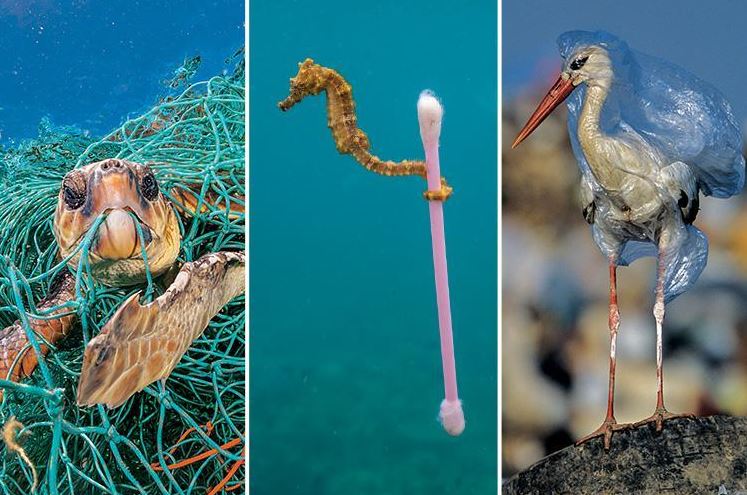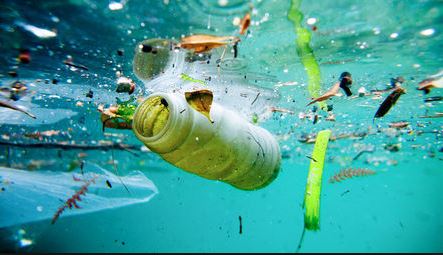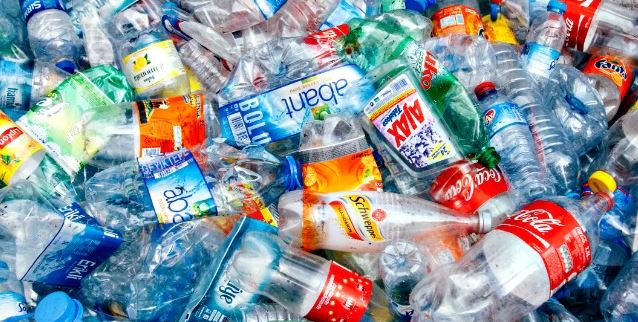
Getting ready for Plastic Free July
If there’s one thing we’ve learnt in the office when getting prepared, it’s that single-use plastic is everywhere and it’s really hard to 100% eliminate it. But of course, the entire point of this campaign is to highlight how much single-use plastic there is in our world, and that now is the time to address how unnecessary most of it is.
We’ve had to consider our milk cartons, bin liners, even the plastic that our toilet roll comes in. Our cleaning products are a major concern, and due to all of our posting and packaging when both receiving and sending packages, we’ve needed to consider our cello-tape and parcel tape usage.
Nevertheless, we’re looking forward to the challenge, and will be reporting back later on in July so you can see how we’re getting on! ?

What is single-use plastic?
We define single-use or disposable as those plastics that are designed to be used just once and then either thrown away or hopefully recycled. Some of these common items are things like plastic bags, straws, coffee stirrers, drink bottles and most food packaging. These are everyday items that we all use without even thinking, and that huge co-operations mass produce for our convenience. Luckily many of these companies are catching on to the fact that a lot of people are voicing that they no longer need or want such items thanks to campaigns such as this one. You may have noticed that plastic straws have now been banned from most establishments who are either replacing them with paper ones or disregarding them entirely.
Why is it important to consider your single use plastic use?
Humans produce an estimated 300 million tons of plastic each year and an amazing half of it is disposable! Unfortunately, it is disappointing to hear that world-wide, only 10-13% of plastic items are actually recycled. Because of the nature of petroleum based disposable plastic, it is really difficult to recycle it and new raw materials and chemicals have to be added in order do so. More chemical pollution!
Where does it go?
Unfortunately, petroleum-based plastic is not biodegradable which means it usually goes into a landfill. The result of this is that it gets buried into the earth for all eternity and continues to pollute. Although plastic cannot biodegrade (decompose into a natural substance such as soil,) it can degrade (break down) into tiny particles after many of years of sitting in the ground. During this process of deterioration, the plastic releases toxic chemicals (these are the additives that were originally used to shape and harden it).
If plastics do not go into the earth, then the alternative is to find their way into the water system and then ultimately into the ocean. We have all seen the devastating effect of floating plastic pollution and contaminated beaches. Marine life and ecosystems have been damaged to extreme levels.

What are the health effects?
We know that shockingly, the degrading chemicals are making their way into human food and water supply and are being consumed every day by us. Alarmingly, experts are now finding toxic chemicals in our bloodstream. The latest research has linked these chemicals to certain types of cancer, infertility, birth defects, impaired immunity and many, many other ailments. More than enough reasons for this to stop now.
In conclusion
Oyster’s support of the Plastic Free July awareness campaign aims to reduce the hundreds of millions of tons of plastic that are produced each year. As most of this cannot be recycled, it’s more obvious than ever that we need to use less plastic in our day-to-day lives. Especially where plastic is seemingly pointless. Hopefully this international campaign will see a shift towards more sustainable products and services that are innovative enough to come up with technology that recycles plastic more efficiently- or doesn’t use it at all.
Through campaigns such of these, all hope of reversing this damage is not lost!
Here are some of our favourite plastic free innovations we someday hoping will become a part of our everyday lives.
So here we go and let’s see how we get on!

















